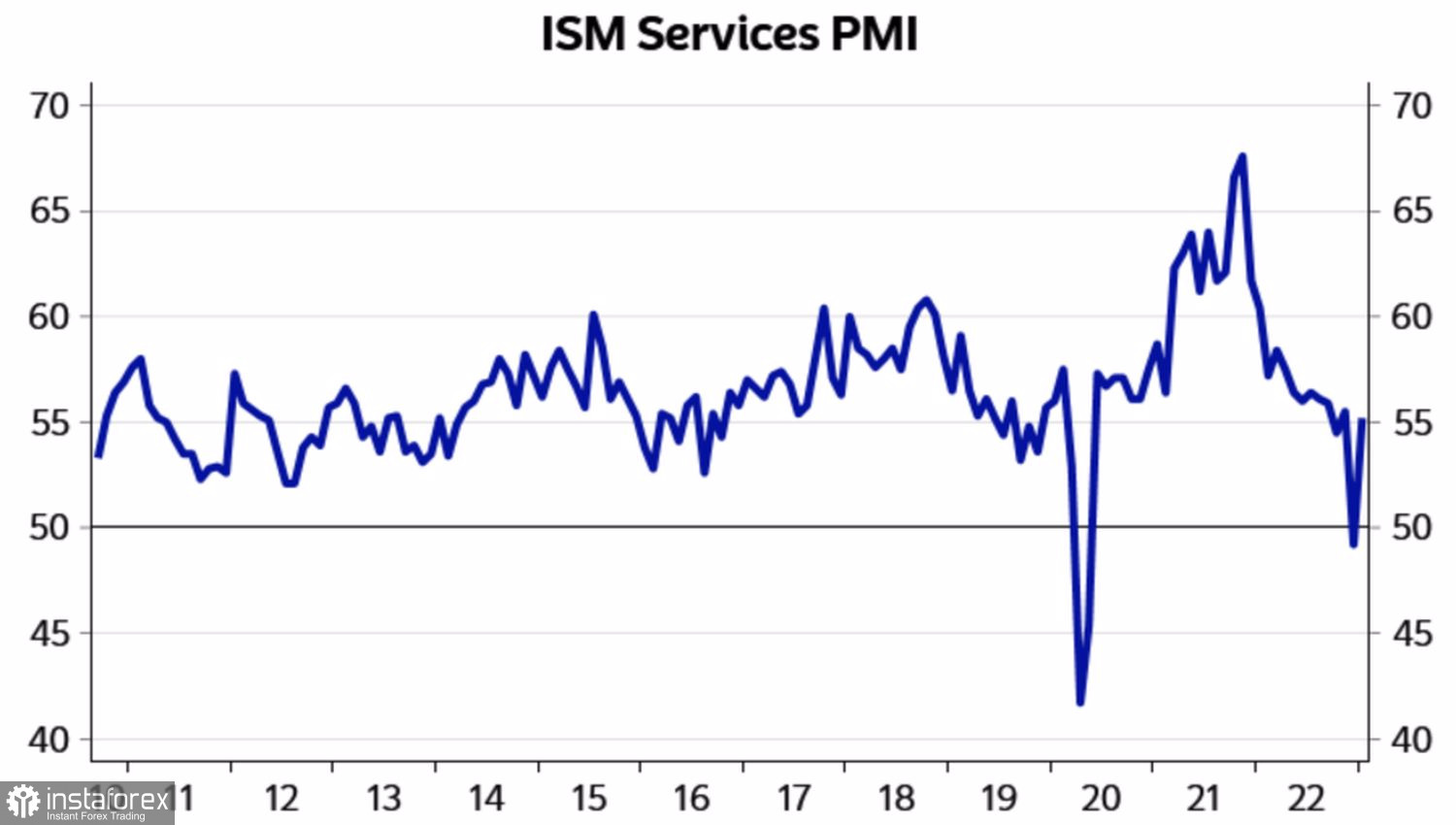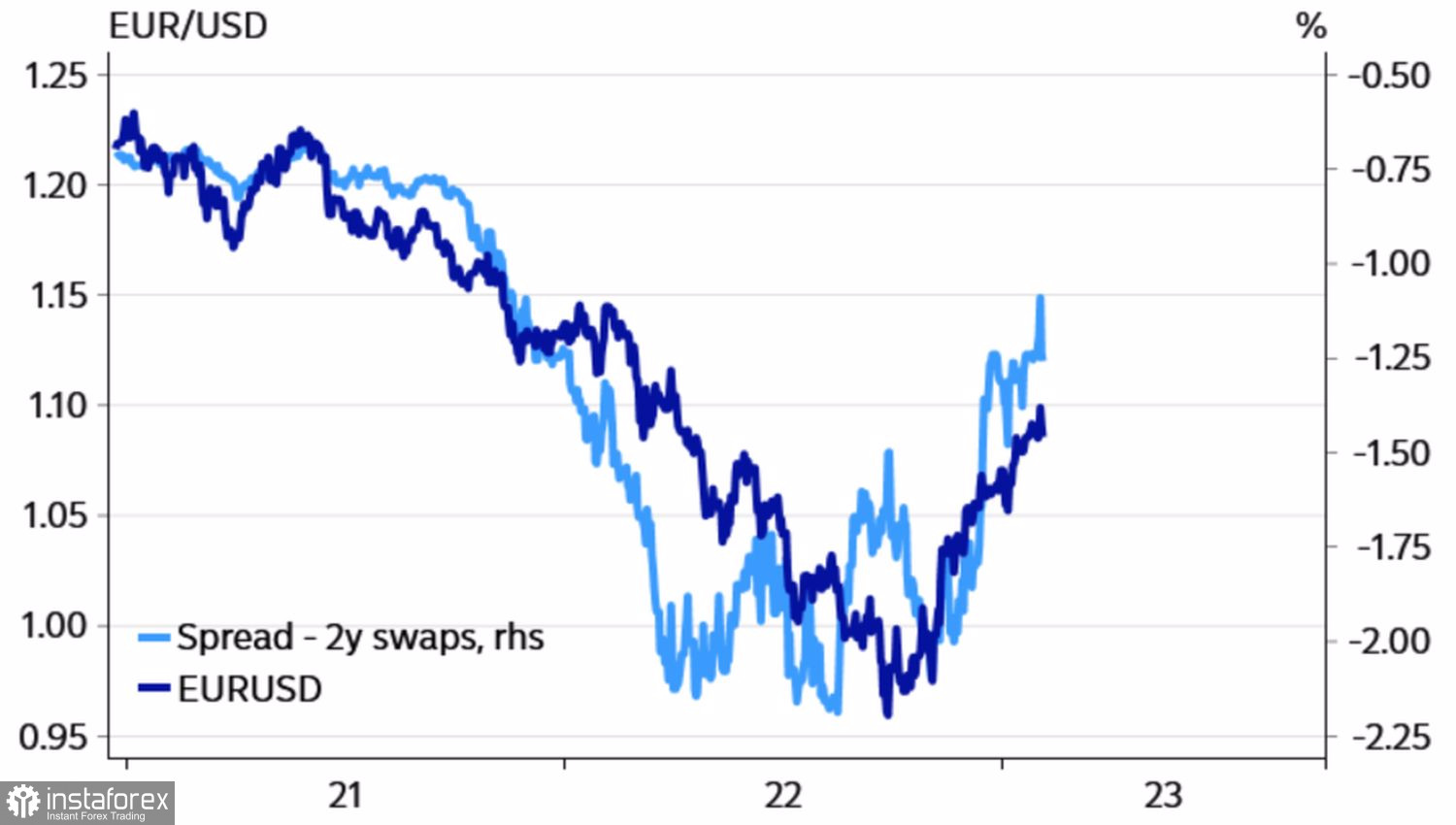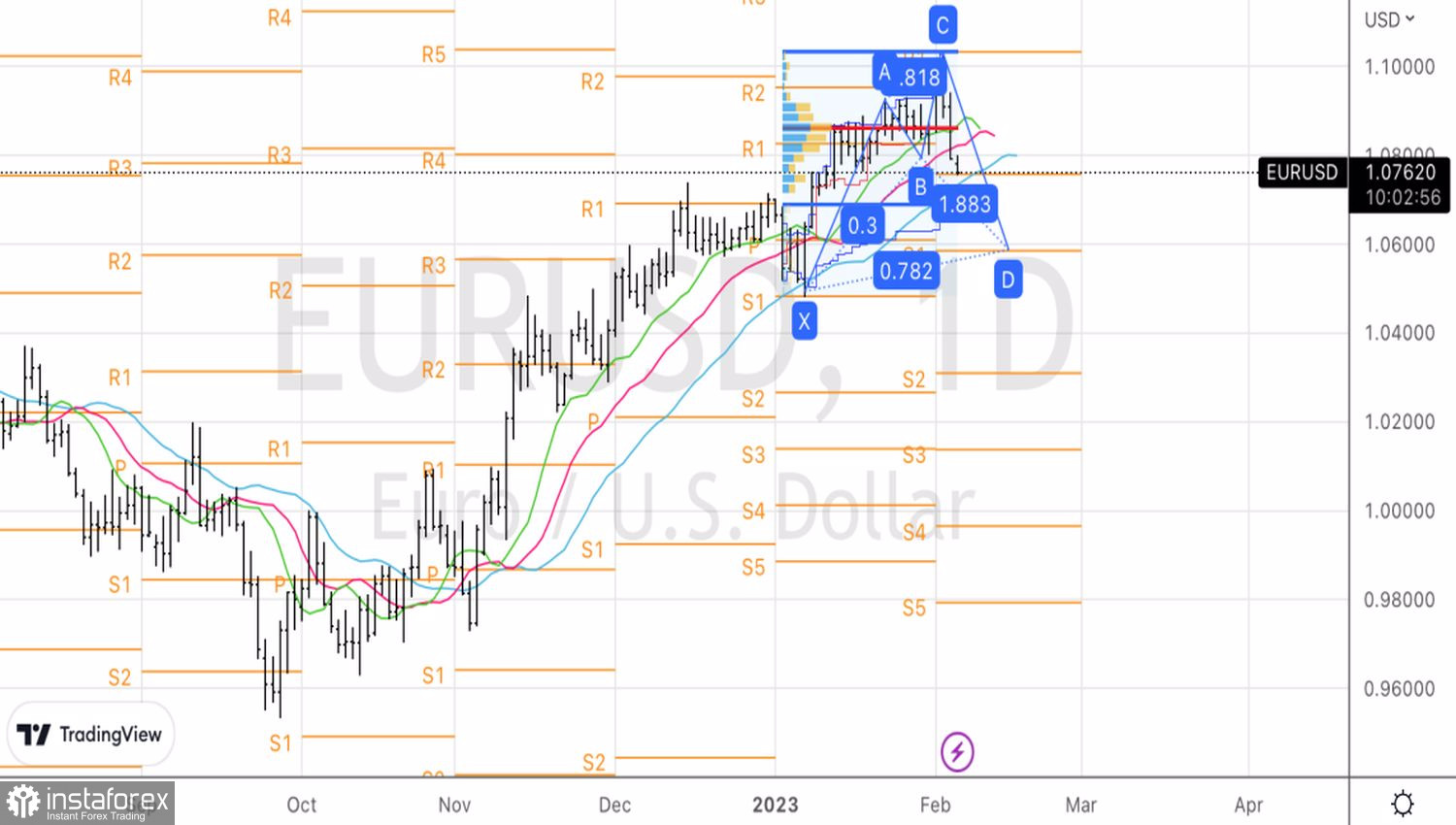Who is to blame for a collapse in the EUR/USD pair? Christine Lagarde with her confusing comments? Surprisingly strong data on the US labor market for January? Or the Chinese balloon shot down off the coast of the United States? I believe that each of these factors contributed to a drop in the major currency pair to a 4-week low. Moreover, this downward correction is likely to continue. After all, at the beginning of the year, the volume of speculative short positions increased significantly amid a weaker dollar. Thus, locking in profits had a destructive impact on the euro.
It is hard to deny that China has been a major contributor to the EUR/USD rally. Expectations of a strong recovery in its economy have boosted global risk appetite, raising hopes that the export-oriented euro area will be one of the main beneficiaries. However, if the Chinese balloon turns out to be a surveillance device, a new round of the trade war between Washington and Beijing will turn the tide. Suffice it to recall how the US dollar strengthened in 2018-2019 when President Trump launched the trade war to pressure Beijing.
Activity in US service sector

Employers added a stunning 517,000 jobs in January. Last year's figure was revised up by more than 800,000. The unemployment rate fell to the lowest level since 1969. The number of job openings in the United States remained high. Jobless claims decreased. All this suggests that the US economy is in no hurry to plunge into a recession. A strong labor market and falling prices are an explosive combination that allows market participants to count on an increase in consumer activity. And a recovery in the ISM Services PMI was the first sign.
If the US economy gains fresh upside momentum, and China and the euro area are not as strong as they seem, the return of American exceptionalism will be a strong argument in favor of short positions on EURUSD in the short term. Moreover, higher consumer activity may result in a return to high inflation, which will force the Fed to raise the federal funds rate not to 5% but to at least 5.25%. In this case, a dramatic policy shift will be out of the question, while market participants are still counting on it.
EUR/USD dynamic and swap differential


Investors have some doubts about the ECB's decisiveness. Robert Holzmann, one of the most hawkish members, argues that the regulator should continue to tighten monetary policy until inflation approaches its 2% target. "The risk of over-tightening seems dwarfed by the risk of doing too little," he said. However, there are also centrists among ECB members who have a different point of view. Christine Lagarde's conciliatory rhetoric confirms this. Although the euro looks undervalued for now, things may well change in the near future.
From a technical point of view, the current Shark pattern may lead to a pullback towards the levels of 1.069 and 1.059. In case of a rebound from these marks, buy signals will be generated.
 English
English 
 Русский
Русский Bahasa Indonesia
Bahasa Indonesia Bahasa Malay
Bahasa Malay ไทย
ไทย Español
Español Deutsch
Deutsch Български
Български Français
Français Tiếng Việt
Tiếng Việt 中文
中文 বাংলা
বাংলা हिन्दी
हिन्दी Čeština
Čeština Українська
Українська Română
Română

